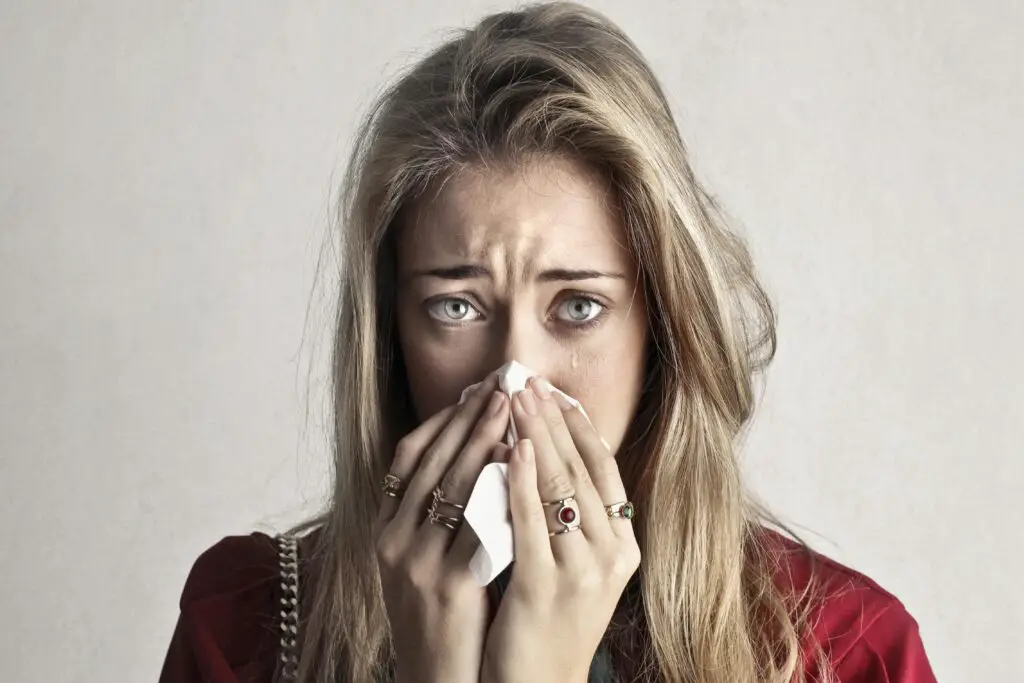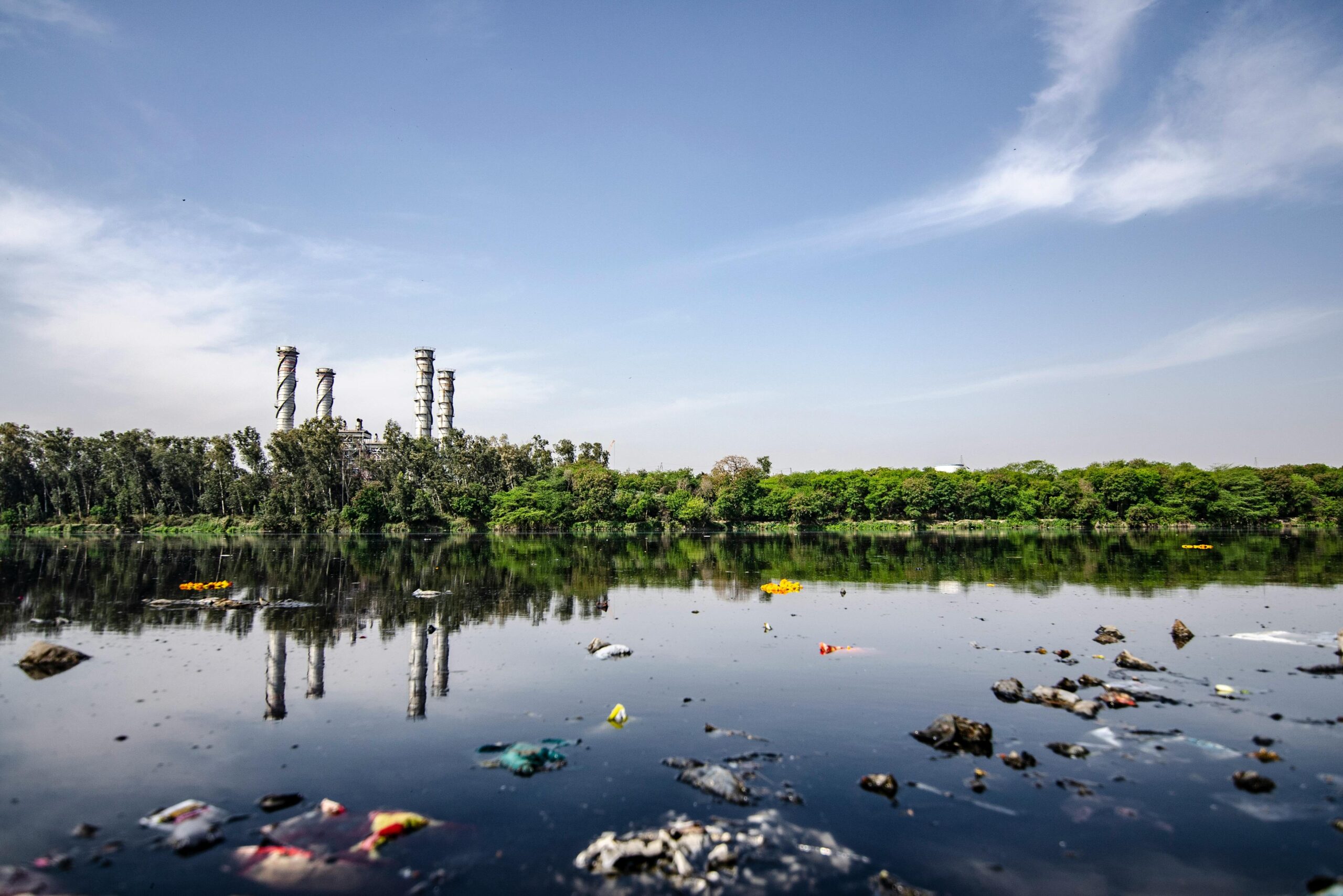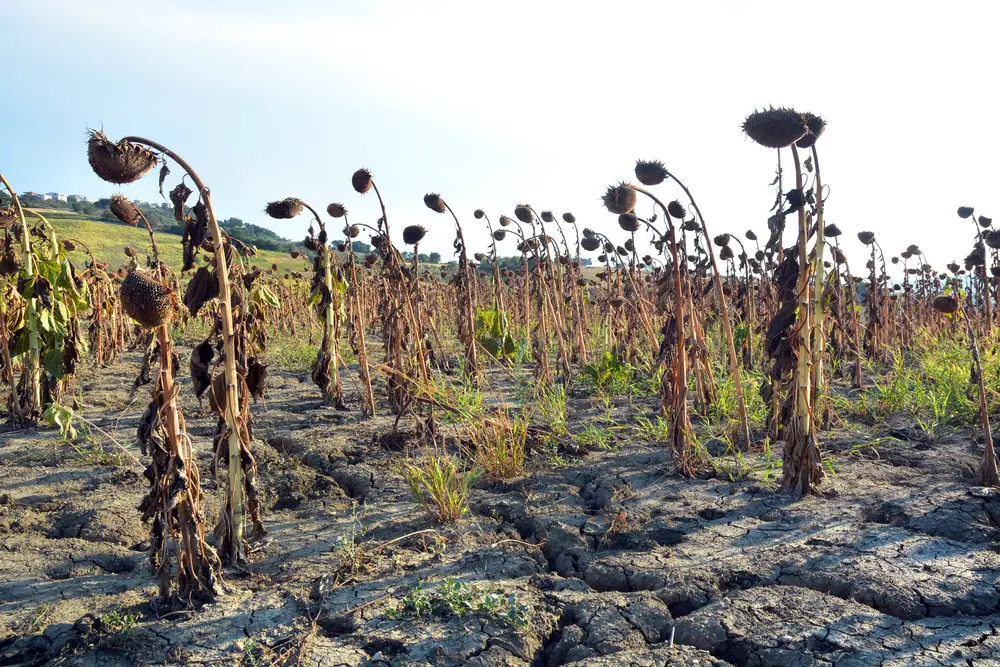1. The Air You Breathe Is Getting More Dangerous

Ever noticed how air quality alerts seem to be popping up more often? That’s because rising temperatures and pollution are creating a perfect storm for unhealthy air. Wildfires are burning longer and hotter, pumping smoke and fine particles into the atmosphere. Meanwhile, heat waves trap pollutants closer to the ground, making every breath a little more toxic. If you’ve been coughing more, experiencing shortness of breath, or feeling like allergy season never ends, you’re not imagining it—WHO says that your lungs are feeling the effects of climate change.
For people with asthma, COPD, or other respiratory conditions, this is especially dangerous. Poor air quality can trigger severe attacks, increase hospital visits, and even shorten life expectancy. But it’s not just those with existing conditions who are at risk. Studies show that long-term exposure to polluted air can lead to heart disease, lung cancer, and even dementia. The simple act of breathing—something we do without thinking—has become a health risk in a warming world.
2. Rising Temperatures Are Messing with Your Sleep

Have you ever struggled to fall asleep during a hot, sticky night? You’re not alone. Climate change is pushing nighttime temperatures higher, and that’s throwing off our natural sleep cycles. Our bodies rely on cooler temperatures to signal it’s time to rest, but when the nights stay warm, we toss, turn, and wake up feeling exhausted.
Sleep isn’t just about rest—it’s when our bodies repair muscles, process memories, and regulate hormones. A lack of quality sleep is linked to everything from weight gain and weakened immunity to anxiety and depression. And here’s the kicker: Scientists predict that by 2100, we could be losing 50 hours of sleep per person per year due to climate change. That’s over two days of lost rest, simply because the planet is heating up.
3. More Heat Means More Heart Problems

Heat waves aren’t just uncomfortable—they can be deadly, especially for your heart. When temperatures rise, your body has to work harder to stay cool, making your heart pump faster. This extra strain can lead to heat exhaustion, dehydration, and even heart attacks, particularly in older adults and people with existing heart conditions.
And it’s not just extreme heat that’s a problem. Warmer temperatures can also contribute to higher levels of stress hormones, increasing the risk of strokes and cardiovascular disease. It’s a scary thought that something as simple as a hot day could be a serious health threat. The reality? Our hearts weren’t designed for this kind of heat.
4. Climate Change Is Making Allergies Worse

If you feel like your allergies have been getting worse every year, you’re not imagining it. Rising temperatures and increased carbon dioxide levels are causing plants to release more pollen and for longer periods. That means allergy season is starting earlier, lasting longer, and packing a bigger punch.
More pollen in the air means more sneezing, itchy eyes, and congestion for millions of people. But it doesn’t stop there—stronger allergens can also trigger asthma attacks. Even if you’ve never had allergies before, climate change could make you develop them. It’s not just about being a little stuffy in the spring; for some, it’s becoming a year-round battle against the air itself.
5. Extreme Weather Is Causing More Mental Health Struggles

Climate change isn’t just affecting our bodies—it’s taking a toll on our minds, too. Natural disasters like hurricanes, wildfires, and floods are becoming more frequent and more intense, leaving devastation in their wake. For the people who experience these disasters, the trauma can lead to PTSD, depression, and chronic anxiety.
But even if you haven’t been directly impacted by a disaster, the constant news of climate catastrophes can create a sense of climate anxiety—a growing mental health issue where people feel overwhelmed, helpless, or even paralyzed by fear of the future. And let’s be honest, who hasn’t felt that creeping worry when reading about rising sea levels or record-breaking heat waves? The emotional weight of climate change is real, and it’s affecting more people than ever.
6. Disease-Carrying Bugs Are Thriving in Warmer Climates

Mosquitoes, ticks, and other disease-carrying insects love warm weather—and thanks to climate change, they’re expanding into new areas. That means diseases like malaria, Lyme disease, Zika virus, and West Nile virus are showing up in places where they were once rare. As winters get milder and summers get hotter, these pests are sticking around longer, giving them more time to spread illness.
It’s not just about a few more bug bites—it’s about increased health risks. Lyme disease, for example, has more than doubled in cases in the last two decades in the U.S. alone. Some of these illnesses can cause lifelong complications, from chronic pain to neurological issues. The simple truth? A warming world is a paradise for disease-carrying pests—and a nightmare for human health.
Click here for more stories like this
7. Water Contamination Is Making People Sick

Rising temperatures and extreme weather events are polluting our water sources, making it harder to find safe drinking water. Floods can wash bacteria and chemicals into reservoirs, while warmer lakes and rivers create perfect breeding grounds for harmful algae blooms. These toxins can cause everything from stomach illnesses to deadly neurological conditions.
Even if you rely on tap water, climate change is making water treatment more difficult. Droughts are drying up reservoirs, while hurricanes and heavy storms are overwhelming water systems. This means more people could be exposed to dangerous bacteria, heavy metals, and other contaminants in what should be clean drinking water. What’s in your water might not be as safe as you think.
8. Droughts Are Making Food Less Nutritious

Did you know that climate change isn’t just affecting how much food we can grow—it’s also making it less nutritious? Rising temperatures and increased carbon dioxide levels are changing the way plants absorb nutrients. This means that crops like wheat, rice, and vegetables have lower levels of protein, vitamins, and essential minerals than they did a few decades ago.
That’s a big problem, especially for people who rely on plant-based diets or have limited access to high-quality food. Iron and zinc deficiencies are on the rise, leading to weakened immune systems, fatigue, and developmental issues in children. And it’s not just crops—livestock is affected too. Heat stress makes animals less healthy, leading to lower-quality meat and dairy products. In short, climate change isn’t just making food scarcer; it’s making it less nourishing as well.
9. Wildfire Smoke Is Damaging Your Skin

When we think of wildfires, we often picture the immediate dangers—flames, destruction, and air pollution. But did you know that wildfire smoke is also harming your skin? The fine particles in the smoke contain toxins and heavy metals that settle on your skin, clogging pores and causing irritation. Long-term exposure has been linked to premature aging, wrinkles, and even an increased risk of skin cancer.
And it’s not just people who live near wildfires who are affected. Smoke can travel thousands of miles, meaning that even if you’re far from the flames, your skin might still be feeling the impact. If your skin has been feeling drier, itchier, or breaking out more often, wildfire pollution could be the culprit. Unfortunately, climate change is making wildfires more frequent and intense, which means our skin will be dealing with these effects more often.
10. Climate Change Is Altering Your Gut Health

Your gut is home to trillions of bacteria that help with digestion, immunity, and even mental health. But climate change is disrupting this delicate balance. Higher temperatures and pollution can alter the microbiomes of the food we eat and the water we drink, introducing harmful bacteria and reducing the good ones.
Foodborne illnesses are on the rise as warmer temperatures create ideal conditions for E. coli, salmonella, and other dangerous pathogens. At the same time, changes in food quality (like lower fiber and vitamin content) can weaken gut health. A weakened gut microbiome has been linked to inflammation, autoimmune diseases, and mood disorders like anxiety and depression. Your gut health is more connected to the environment than you might think!
11. The Ocean Is Changing, and So Is Your Seafood

If you love seafood, you might want to pay attention to how climate change is affecting the ocean. Rising temperatures and acidifying waters are changing marine ecosystems, making some fish species smaller, scarcer, or even toxic. For example, shellfish like oysters and mussels are struggling to form their shells due to increasing ocean acidity.
Even more concerning, mercury levels in fish are rising due to climate change-driven changes in ocean chemistry. This means that eating your favorite seafood could come with higher risks of mercury poisoning, which can affect brain function and nervous system health. It’s not just about losing your favorite sushi roll—it’s about the long-term safety of the food supply.
12. Climate Change Is Increasing Stroke Risk

Heat waves don’t just make people uncomfortable—they increase the risk of strokes. When it’s extremely hot, the body works overtime to cool itself down, leading to dehydration and thicker blood. This increases the likelihood of blood clots, which can trigger strokes, especially in older adults and those with preexisting conditions.
Additionally, air pollution—made worse by climate change—contributes to high blood pressure and inflammation, both of which are major stroke risk factors. Scientists have found that heat-related strokes are becoming more common, even among younger people. It’s yet another example of how the environment is directly affecting our health in ways we might not immediately realize.
13. Climate Change Is Shrinking Your Brain (Yes, Really!)

It sounds like science fiction, but rising temperatures and pollution are actually linked to smaller brain volume. Research shows that long-term exposure to air pollution and extreme heat can reduce cognitive function, increase memory loss, and even contribute to neurodegenerative diseases like Alzheimer’s and Parkinson’s.
Heat stress affects brain function, leading to mental fatigue, slower reaction times, and impaired decision-making. Meanwhile, high levels of CO2 (which are increasing due to climate change) can make people feel foggy, sluggish, and less focused. Our brains are literally struggling to function in a warming world. If you’ve ever felt like you’re thinking more slowly during a heat wave, there’s real science behind it.


